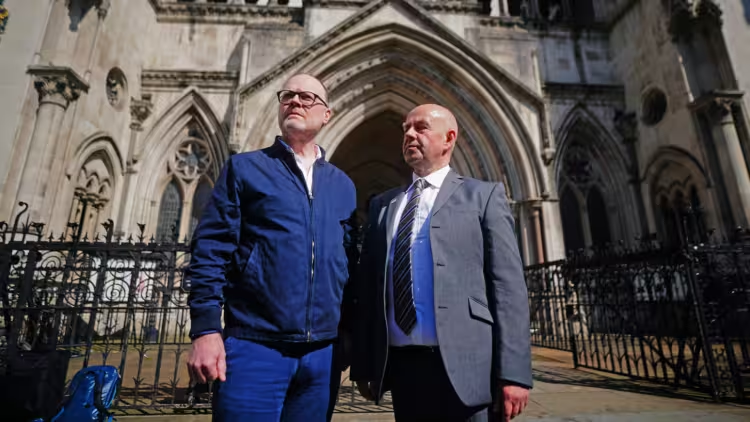By Tony O’Reilly-
Explosive revelations emerged at the Investigatory Powers Tribunal (IPT) in London, exposing the Police Service of Northern Ireland’s (PSNI) routine surveillance of journalists, sparking widespread condemnation and calls for accountability.
During the tribunal, details of what has been described as “Orwellian” spying tactics employed by the PSNI on reporters were disclosed, painting a concerning picture of intrusion into press freedom.
The revelations surfaced in a case examining allegations of unlawful covert intelligence gathering against investigative journalists Barry McCaffrey and Trevor Birney in Northern Ireland.
The evidence presented indicated that the PSNI’s surveillance operations extended beyond McCaffrey and Birney to encompass several other journalists operating in the region.
Among the tactics employed was the six-monthly trawling of phone data of “troublemaker” journalists to ascertain potential contacts with police sources, a move branded as shocking and despicable by the National Union of Journalists (NUJ).
The case originated in 2018 when McCaffrey and Birney were controversially arrested in connection with their investigative documentary on a Troubles massacre.
Despite later apologies from the PSNI and significant damages awarded to the journalists, the case has since evolved, revealing broader patterns of surveillance and intrusion into journalistic activities.
New evidence disclosed to the tribunal highlighted additional instances of police surveillance, including attempts to access data from journalists’ spouses and consideration of accessing their legal representatives’ personal information.
Furthermore, claims of potential collaboration between the PSNI and other police forces, such as the Metropolitan Police, in accessing journalists’ data have surfaced, raising further concerns about the extent of the surveillance network.
The revelations have prompted swift and severe criticism from various quarters, with the NUJ condemning the behaviour as characteristic of an authoritarian state rather than a modern democracy.
Calls for transparency and accountability have intensified, with demands for the PSNI to disclose the full extent of its surveillance operations, including the identities of targeted journalists and the frequency of surveillance activities.
Amnesty International echoed these sentiments, denouncing the apparent industrial-scale spying operations against journalists as a complete contempt for the principle of press freedom.
Urgent calls for accountability and transparency have been issued, emphasizing the need for full disclosure and cessation of unlawful surveillance practices.
Political figures, including SDLP leader Colum Eastwood, have labelled the revelations as scandalous, highlighting the systemic and routine nature of surveillance against journalists engaged in public interest investigations.
The case has exposed the challenges faced by journalists in Northern Ireland and the imperative of safeguarding press freedom against undue state intrusion.
It puts the spotlight on the actions of the PSNI and other implicated authorities, with expectations of full transparency and accountability to restore public trust and uphold fundamental democratic principles.

